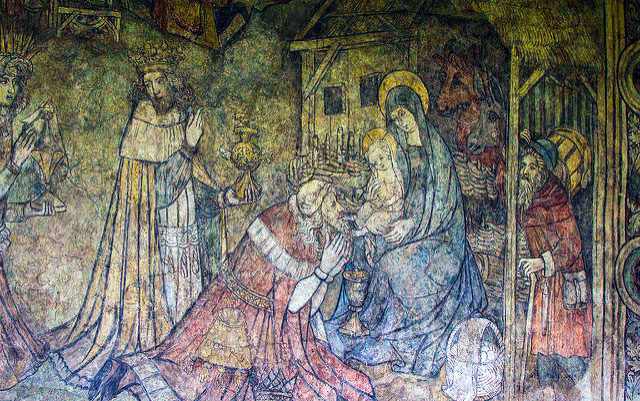The angel Gabriel came to the little village of Nazareth, in Galilee, to a young girl named Mary. He had a wondrous announcement for her: “Do not be afraid, Mary; you have found favor with God. You will conceive and give birth to a son, and you are to call him Jesus. He will be great and will be called the Son of the Most High. The Lord God will give him the throne of his father David, and he will reign over Jacob’s descendants forever; his kingdom will never end.”
“How will this be,” Mary asked, “since I am a virgin?” It was not a question of doubt but of wonder, for Mary was a ponderer and thought deeply about things.
“The Holy Spirit will come on you,” Gabriel answered, “and the power of the Most High will overshadow you. So the holy one to be born will be called the Son of God. Even Elizabeth your relative is going to have a child in her old age, and she who was said to be unable to conceive is in her sixth month. For no word from God will ever fail.”
“Behold the maidservant of the Lord!” Mary said, “Let it be to me according to your word” (Luke 1:38).
Mary said Yes. She said Yes to the angel and his announcement, of course, but more than that, she said Yes to God the Father, who had sent the angel and shown her such favor. She said Yes to the Son, who would be conceived in her womb and to whom she would give birth. And she said Yes to the Holy Spirit, by whom this great miracle would happen.
Mary’s was a very powerful Yes , one that changes the whole world. For it is in her Yes — her faith-filled response to God’s Yes — that Christ received his humanity, so that God became flesh and dwelt among us. And it is by the humanity the Lord Jesus received from Mary that he has joined himself to us in our humanity — becoming not only one of us but one with us. It is through Mary’s Yes, then, that God has chosen us in Christ. That changes all of us and is what all creation is longing for.
The creation waits in eager expectation for the children of God to be revealed. For the creation was subjected to frustration, not by its own choice, but by the will of the one who subjected it, in hope that the creation itself will be liberated from its bondage to decay and brought into the freedom and glory of the children of God. We know that the whole creation has been groaning as in the pains of childbirth right up to the present time. (Romans 9:19-22)Through her Yes to God, Mary became the pathway for the God who became Man and who rescues the world through the cross and the resurrection. Because of Mary’s Yes to giving birth to the Lord of heaven and earth in a lowly stable, the birth-pangs of all creation will be fulfilled.
Merry Christmas to all creation.





